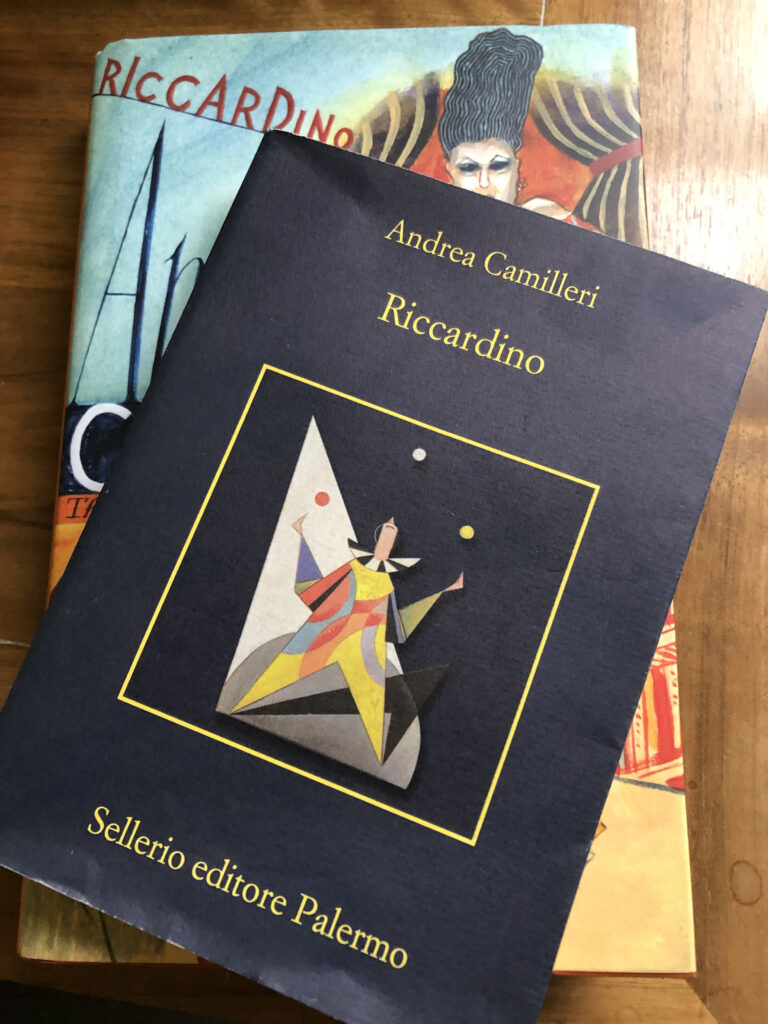This blog is about two authors whose final novels were recently published on the same day (October 14), and published posthumously – John Le Carré, the famous British (mostly spy) writer who died last December aged 89, and Andrea Camilleri, the Italian author who passed away in July 2019 aged 93.
Silverview was Le Carré’s 27th published work. (Its cover is shown on the home page.) I think it will not grow to be regarded as one of his epics, such as The Spy Who Came in from the Cold (1963), Tinker Tailor Soldier Spy (1974) or The Constant Gardener (2001), all of which were made into films, but it is hugely enjoyable. The central character is Julian Lawndsley, who has turned his back on financial success in the City to take over a bookshop in East Anglia. An apparently chance encounter, which of course has nothing to do with chance, leads to him meeting Edward Avon, whose back story is mired deep in espionage and treachery, and whose wife is/was a big shot in the UK security services. They have a daughter, Lily, who has a fundamental role to play as well.
Although the intriguing storylines and shiftily nefarious characters are hallmarks of a Le Carré book, he was more than capable of turning a nifty phrase. I recall two examples in consecutive paragraphs in The Night Manager (1993), which, like TTSS, was dramatised by the BBC. “How ever old do you suppose she is?”, Jed asks Thomas while looking at a woman who’s had ‘work’ done. “Depends which bit you’re thinking of,” comes the reply. And about a group of merchant bankers, Le Carré writes they “said ‘ears’ when they meant ‘yes’ and ‘hice’ when they meant ‘house’ and ‘school’ when they meant ‘Eton’…”

I previously wrote a blog about Andrea Camilleri’s Inspector Salvo Montalbano books in October 2015. Like Le Carré, his books made it on to the screen, the Montalbano TV series being shown in Italy (obviously) and on BBC4 in the UK. He wrote the final book, Riccardino, in 2006 and told his publisher to keep it the manuscript his office until “I get fed up with him or am not able to write any more”. In the event, Camilleri passed away before he got to instruct his publisher to pull the trigger.
Apart from having to solve crimes, usually murder(s), Montalbano gets to reflect on the mafia, Silvio Berlusconi, the Vatican and venal Italian politicians. And even the EU. For example, in The Sicilian Method (third last in the sequence), a man complains to a restaurateur: “I’ve been hearing about this damn restaurant and its pasta con quadumi (cows’ innards), and now you tell me that the damn European Union says you’re not allowed to make it any more?” It’s not just Brexiteers who might rail against the goings-on in Brussels.
There are 28 Montalbano books, one of which, The Cook of the Halcyon, was also published in the UK after the author’s death. This presently looks to be unlikely, thank goodness, but if there were to be another long covid lockdown I think I might read them all again in order from the start, which was The Shape of Water in 1994 (so, yes, Camilleri was nearly 70 when he began writing the series). Happy reading, indeed. The same for John Le Carré, too.
